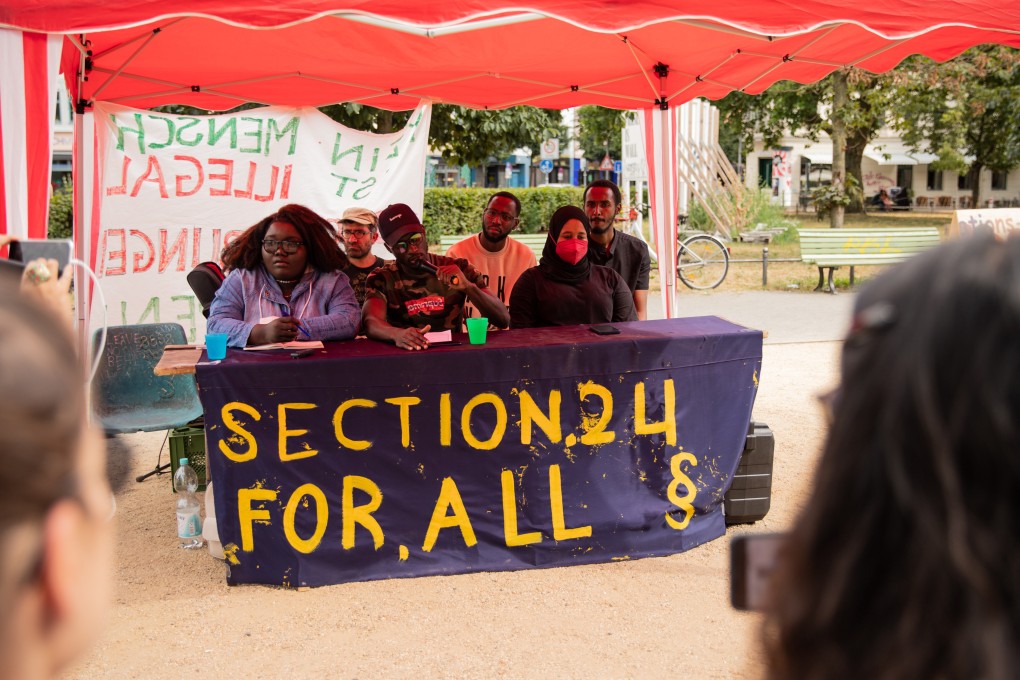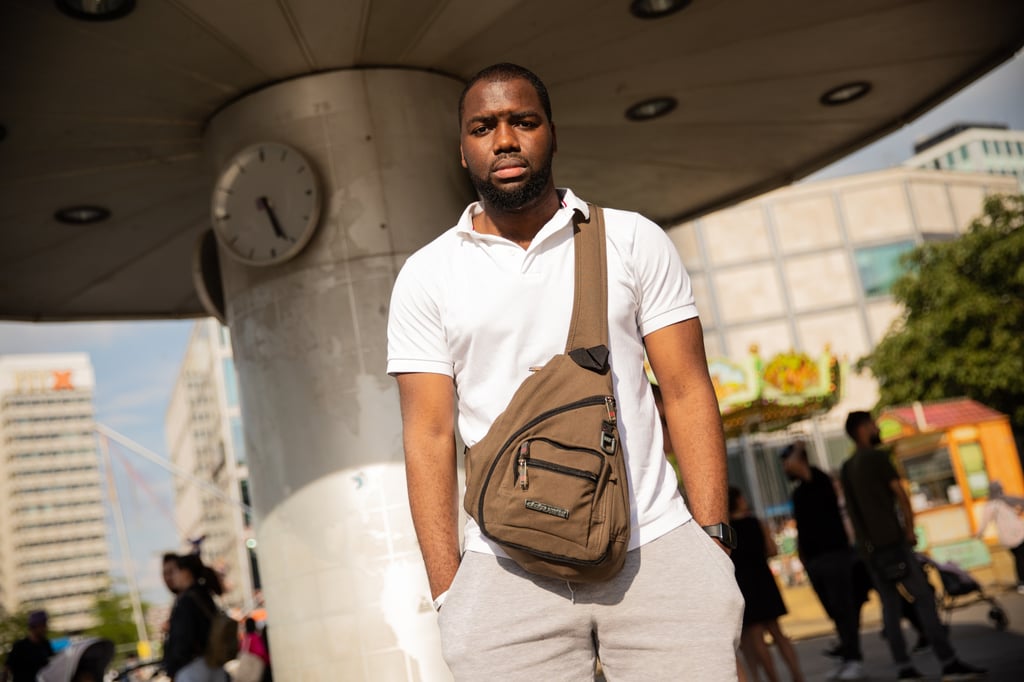Advertisement
Non-Ukrainians in Germany who fled Russia’s invasion now fear deportation as Paragraph 24 residency deadline looms
- Third-country nationals (TCNs) are scrambling to secure work or study permits, or find other options to legally stay in Germany before August 31
- Paragraph 24 gives eligible refugees a two-year residence permit, allowing them the right to work and study, along with social benefits
Reading Time:4 minutes
Why you can trust SCMP
4

The clock is ticking for Temitayo Oyeniran, who wakes up each day with a sense of dread, nervously checking his emails, hoping there is no message detailing the date of a life changing interview.
He fears German immigration officers may summon him to discuss his eligibility to stay in the country.
The 29-year-old Nigerian is desperate to secure a work permit before August 31, the date by which third-country nationals (TCNs) – people who are stranded in a country that is not their own – must have applied for permission to remain in Germany.
Advertisement
Oyeniran spent eight years in Ukraine where he completed a medical degree and then a master’s in management and was about to start an internship when the war broke out.

He fled Kharkiv with just a bumbag, phone and the clothes on his back, and is currently working as a hotel receptionist in Berlin but is trying to find a job that would give him a work permit.
Advertisement
Advertisement
Select Voice
Select Speed
1.00x